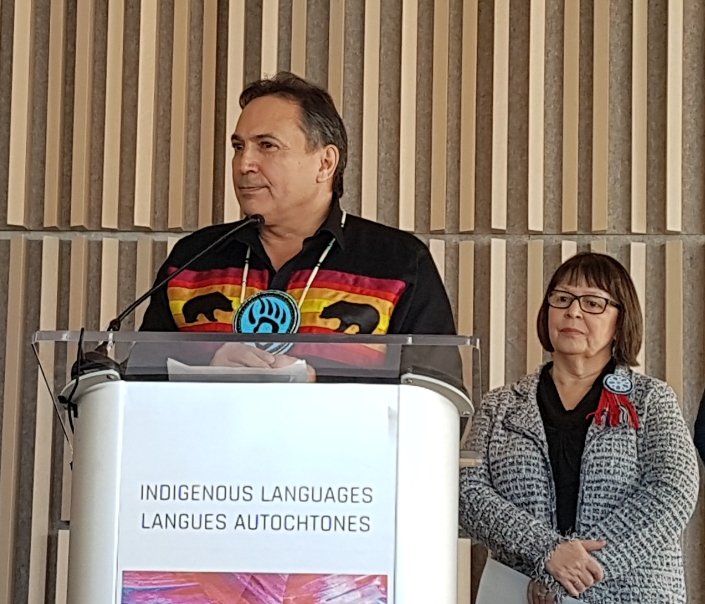The Assembly of First Nations says it welcomes the tabling of the Indigenous Languages Act.
“This is landmark legislation to protect and strengthen Indigenous languages, the original languages of these lands, that embrace our identity, our worldview and our nationhood,” said National Chief Perry Bellegarde. “No Indigenous language in Canada is safe. But now there is hope. This legislation will support First Nations efforts to keep their languages alive, vital and strong.”
The legislation aims to revitalize, strengthen and maintain languages will also see the creation of the Office of the Commissioner of Indigenous Languages.
The most recent data from Statistics Canada indicates a decline in the number of Indigenous people being able to speak their language.
In 2016, 16 percent of people reported speaking an Indigenous language, down from 21 percent in 2006. In 2016, only 12.5 percent of Indigenous people declared their mother tongue was an Indigenous language, compared to 14.5 percent in 2011.
“We need legislation to ensure sufficient, sustainable and long-term funding toward the revitalization of our languages. We need schools on-reserve as well as in urban and rural settings to create and implement effective bilingual and immersion education programs beginning with pre-school age children,” Bellegarde said last week while addressing the United Nations General Assembly.
“We need programs that inspire all of our people to speak our languages, regardless of age, to renew the vibrancy of our communities as our cultural places. We want our languages to be our living languages – sourced from our lands, expressing our creation stories, and alive in our ceremonies and daily lives.”
The AFN says it helped co-develop the legislation to ensure that First Nation perspectives, priorities and rights were included in the legislation. To become law, the legislation needs to pass before the summer when the government dissolves for a fall election.
(Photo courtesy of Assembly of First Nations Twitter.)
